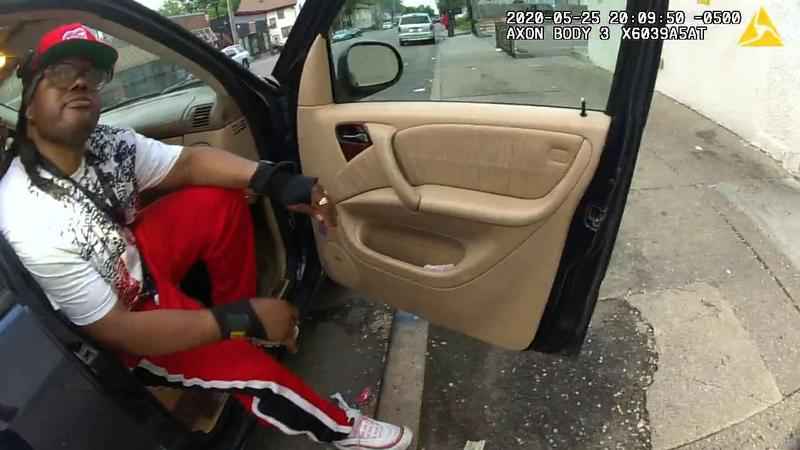Possible 3rd-degree murder charge influencing potential witness’ decision to testify in Chauvin trial
[anvplayer video=”5020371″ station=”998122″]
A potential key witness in the death of George Floyd invoked his right to not testify due to fears he could later face a murder charge often used to target drug dealers in deadly overdose cases.
Morries Hall, a friend of Floyd’s, was in the passenger seat of the car the evening of May 25. Hall spoke to officers when they arrived at the Cup Foods to investigate Floyd’s use of a counterfeit $20 bill.
Last month, Hall notified the court he will invoke his Fifth Amendment right against self-incrimination if called to the stand.
Hall’s attorney Adrienne Cousins argued that because there are allegations of drug use and that drugs were found in Floyd’s SUV, any testimony Hall would offer could subject him to criminal charges.
Morries Hall, passenger seen with George Floyd, invokes 5th Amendment to refuse testimony

In this still frame from a May 25, 2020, body camera video, Morries Hall is seen stepping out of an SUV. Hall was with George Floyd at Cup Foods when Floyd was taken into police custody on suspicion of passing a counterfeit $20 bill.
"At this point in time, Mr. Hall has no immunity," Cousins said in court. "This leaves Mr. Hall potentially incriminating himself into a future prosecution for third-degree murder."
In Minnesota, third-degree murder has been used to charge people involved in drug overdose deaths. Data from the state court administration shows in the last 10 years, charges under this provision of the statute have increased dramatically, from two cases filed statewide in 2010 to 35 cases in 2020.
Rachel Paulose, a University of St. Thomas law professor and former U.S. attorney said the third-degree murder statute has been interpreted differently in Minnesota when compared with other states.
"It has been used to attach liability to drug dealers because of the standard of negligence that creates an unreasonable risk of death," Paulose said.
Cousins argued to the court that the defense’s theory that drugs contributed to George Floyd’s death could result in her client’s criminal liability for the death and any of his testimony could "potentially incriminate him."
Full State vs. Chauvin trial coverage
Judge Peter Cahill asked Chauvin’s defense attorney, Eric Nelson, to draft a questionnaire, with the expected answers Hall would give by Thursday. Hall and his attorney then will go through the questionnaire outside of the jury before Cahill makes a ruling.
"We need to tread carefully," Cahill noted on Tuesday.
Paulose said given the fact that this witness has been seen and heard by the jury on body camera video evidence, it is possible that Cahill could force Hall to testify and answer those specific questions.
"It would be exceedingly difficult, I think, given the defense theory of this case to draft questions which at some point don’t cross the line into potential criminal conduct by Mr. Hall," Paulose said.